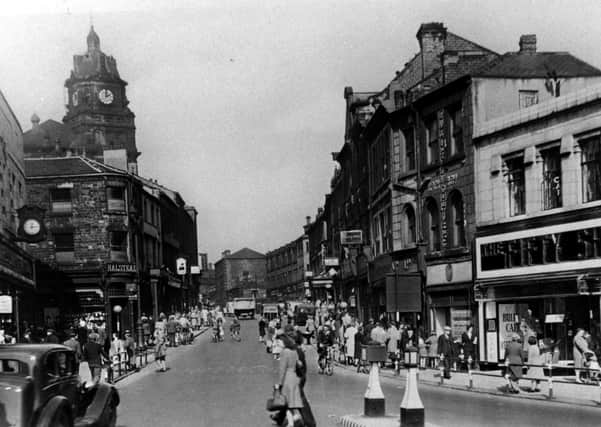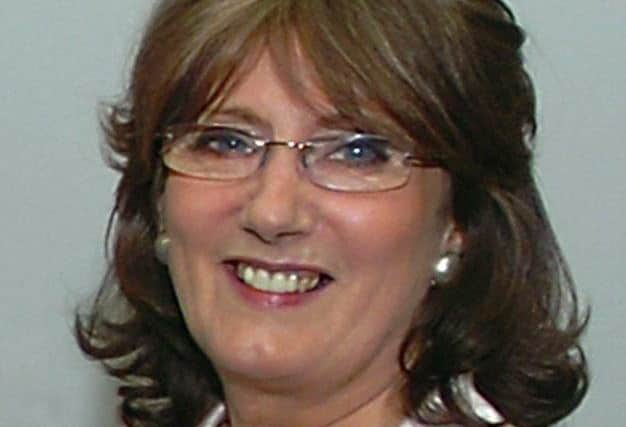The Nostalgia column with Margaret Watson: The start of the buy now, pay later philosophy


One thing for sure, it won’t be paid for by a giant credit card in the sky, but we cannot be worrying about that at the moment.
So, let’s look back to the days when debt wasn’t a problem because people paid for everything in cash.
Advertisement
Hide AdAdvertisement
Hide AdIf we couldn’t afford to buy anything we didn’t get it, and we didn’t have to look at our bank account to see if we were in the red or not.


And, if we didn’t have any pennies for the gas meter, we sat in the dark or lit a couple of candles.
There were no credit cards, hire purchase agreements or bank overdrafts to get us out of a sticky situation.
But, after the war when everyone’s standard of living improved, working people were allowed more credit.
Advertisement
Hide AdAdvertisement
Hide AdA new philosophy of buying now and paying later was developed, helped by companies like the Provident Clothing Company.
They “sold” £10 or £20 cheques on commission to people who couldn’t afford to pay cash, like our family.
The cheques could only be exchanged for goods, not money, but the downside of this was people began to buy things they couldn’t really afford.
It was like winning the pools when these cheques arrived at our house, and it didn’t take long for mother and my older sisters to trip off to Leeds to spend it.
Advertisement
Hide AdAdvertisement
Hide AdWhat a liberating experience for people like my mother to go shopping with a £20 cheque in their purse when until now they hadn’t even handled a £5 note.
This was in the days when you could buy a winter coat for £2, but some shops, like Harvey’s and Birtles, thought it was beneath them to accept “provi” cheques.
The “provi” man called at our house every Friday night for his weekly payment, followed by the coal man, milk man, rent man and insurance man.
In the past, the latter four had always been paid in full, but the arrival of the “provi” man changed all that.
Now mother had five bills to pay instead of four.
Advertisement
Hide AdAdvertisement
Hide AdIt doesn’t take a mathematician to work out that five into four won’t go, which meant one of the collectors had to be missed each week.
Desperate times require desperate measures, and mother quickly learned the art of borrowing from Peter to pay Paul without letting Peter know.
At first she broke the bad news to the faces of those being “missed” but some Fridays her courage failed her.
She would hide behind the cellar door and get one of us to explain to the collector being “missed” that she wasn’t at home.
Advertisement
Hide AdAdvertisement
Hide AdNo-one escaped this little conspiracy and we all learned to tell lies without batting an eyelid – but some weeks were worse than others.
When there was no money to pay any of the collectors, we spent Friday night sitting in the dark with curtains drawn and door locked.
We sat huddled in the darkness waiting for the dreaded footsteps coming up the street and listening for that terrifying knock on the door.
Memories of those Friday nights still haunt me, especially the loud banging on the door which seemed to rock the house.
Advertisement
Hide AdAdvertisement
Hide AdWe hardly dare breathe, and I could feel my mother’s rigid body beside me.
I couldn’t have been more scared if it had been Dracula at the door.
Our family’s system of paying debts got more complicated when the electricity and gas boards got rid of coin operated meters and replaced them with bills.
Until then, we’d saved our pennies for the meters and when they ran out, we sat in the dark, but at least we never had to worry about gas and electric bills.
Advertisement
Hide AdAdvertisement
Hide AdLife might have seemed to be getting better, but for families like ours, it was getting worse.
We were now using more gas and electricity than we could afford, and three months later the massive bills started arriving.
At this time, my father had passed away, and mother was left to bring up a large family on her own.
She got depressed and kept forgetting to put money to one side for the quarterly bills.
Advertisement
Hide AdAdvertisement
Hide AdConsequently, we kept getting threatening letters saying our electricity would be cut off, which it was once or twice.
No wonder poor people started to think that “living now and paying later” was not such a good idea after all.
My mother longed for the good old days when her only worry was where the next meal was coming from.
But it was too late to turn the clock back.
The trap had been set, and paying on the “never, never” was now a part of life.
Advertisement
Hide AdAdvertisement
Hide AdShops which had once shunned the poor were now urging them to buy whatever they wanted for just a small deposit.
Hire purchase was here to stay and people who had always bought second-hand furniture were now demanding new.